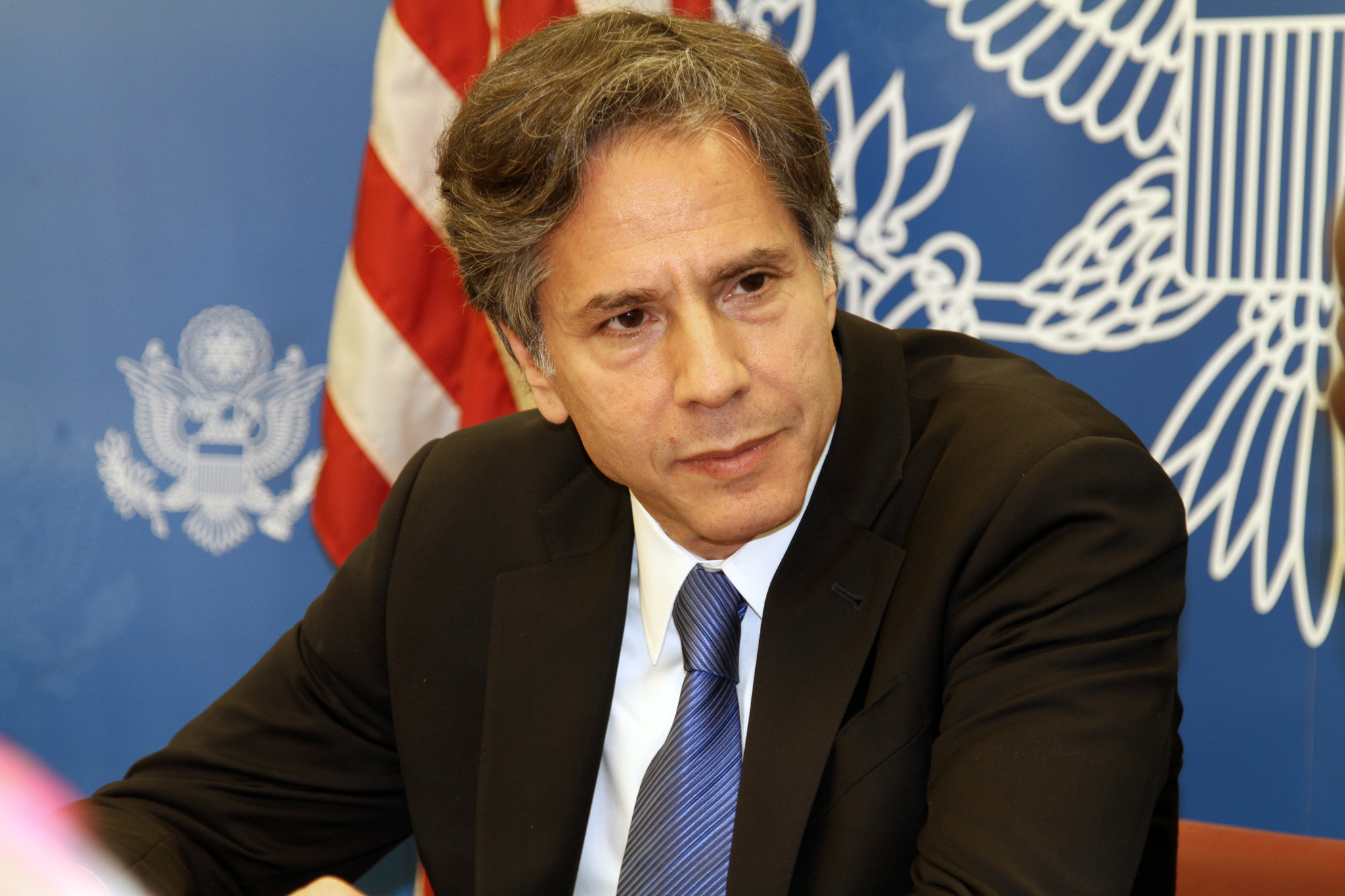 The Freedom From Religion Foundation applauds the 2020 Report on International Religious Freedom released today by Secretary of State Antony Blinken for including the rights of nonbelievers.
The Freedom From Religion Foundation applauds the 2020 Report on International Religious Freedom released today by Secretary of State Antony Blinken for including the rights of nonbelievers.
Blinken described religious freedom as “coequal,” condemned Nigeria for jailing citizens for blasphemy, noted approvingly that Sudan repealed laws against apostasy, and highlighted Nigeria’s continuing prosecution of blasphemy.
Blinken singled out a famous imprisoned Saudi atheist by name, saying, “Authorities continue to jail human rights activists like Raif Badawi, who was sentenced in 2014 to a decade in prison and a thousand lashes for speaking about his beliefs.” For the “crime” of apostasy, Badawi was shockingly sentenced in 2013 to 600 lashes and seven years in prison, which was increased to 1,000 lashes and 10 years in prison the following year (with a hefty accompanying fine). Badawi’s wife, Ensaf Haidar, spoke movingly at FFRF’s convention in 2018, where she was presented with the Henry Zumach Freedom From Religious Fundamentalism Award.
“This report is a breath of fresh air after the last administration,” says FFRF Co-President Annie Laurie Gaylor. “Religious freedom is a vital right, but it must include the right to dissent and to reject religion. We’re glad to see that reasserted.”
Blinken’s description of religious freedom was particularly important because it corrected a disastrous deviation from the universal understanding of the right as “coequal.”
The Trump administration, led by Christian nationalist Mike Pompeo, sought to create a “hierarchy of rights” with religious freedom at the top. “This elevated religion into a super-right that allowed believers to impact and even violate others’ rights to free speech, assembly, and be free from government discrimination,” adds FFRF Director of Strategic Response Andrew Seidel.
The new report marks the death of the ill-considered attempt to privilege religion above all else. As Blinken explained:
Religious freedom is a human right. In fact, it goes to the heart of what it means to be human. To think freely. To follow our conscience. To change our beliefs if our hearts and minds lead us to do so . . . Religious freedom, like every human right, is universal. All people, everywhere, are entitled to it, no matter where they live, what they believe or what they don’t believe. Religious freedom is coequal with other human rights because human rights are indivisible. Religious freedom is not more or less important than the freedom to speak, assemble, to participate in the political life of one’s country, to live free from torture or slavery, or any other human right.
Blinken observed that religious freedom cannot exist without democratic governance and the rule of law. FFRF would add that, in the U.S., democracy and rule of law have been under sustained assault by Christian nationalists, including the violent assault on Jan. 6.
The report is nearly 2,500 pages and it includes references to some of the people FFRF has worked to help and unjust laws FFRF has worked to overcome internationally. For instance, the section on Nigeria reports, “Authorities detained Mubarak Bala, head of the Humanist Association of Nigeria, in April without filing any charges, although his attorneys stated they believed he was being held on charges related to allegations of insulting Islam on Facebook.” FFRF has mobilized members and resources to help Bala. The report on Saudi Arabia notes that “the law criminalizes ‘the promotion of atheistic ideologies in any form.’”
The press conference was given in the shadow of the violence in Gaza and a mounting death toll (AP reports the death of 53 Palestinians, including 14 children), which became the focus of media questions at the conference.
Blinken mentioned positive changes, such as the fact that last year, the civilian-led transitional government in Sudan repealed apostasy laws and public order laws “that have been used to harass members of religious minority groups” and those attempting to leave Islam. The report makes it clear that true religious freedom, which necessitates freedom from government-imposed religion, has a long way to go. For instance, many countries still punish apostasy: Afghanistan, Oman, Mauritania, Qatar, Yemen and the Maldives, to name a few.
The spotlight that the report sheds on such issues will hopefully nudge the world in a positive direction.

